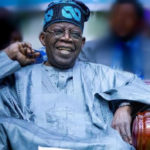NIGERIA’s tertiary educational institutions have in the last four decades or so become theatres of incessant and debilitating strikes by the various trade unions in the institutions. Of all the cornucopia of strikes that had taken place, those by the Academic Staff Union of Universities (ASUU) have grown from being a sporadic action to a constant rhythmical phenomenon. According to a statistics given by a faction of the union, ASUU has between 1999-2022 embarked on strikes for about 1,417 days. One fact that has emerged from this trend is that ASUU has embarked on strike under every government in power during both military and civilian eras. This being the case, it can be further deduced that for ASUU strike to have continued till date, it means that ASUU’s demands and strategies are yawning for a critical review without completely absolving the government of inactions and poor responses.
Forgetting that ASUU has been having issues with every successive Nigerian government, ASUU chairman, Professor Emmanuel Sodeke, in an interaction with the press, enjoined ASUU members to vote out the APC in the 2023 general election, believing that the new government will accede to the union’s demands. But the question is, which new government of which leading political party? Is it the PDP-led government that had governed before and whose presidential candidate, Abubakar Atiku, has in guile promised to devolve powers to states, including on education? Or Peter Obi who was evasive when asked what he had up his sleeves for resolving the perennial ASUU strike? What this portends is that ASUU has reached a juncture where it has to address the realities of its predicament, review its demands, purify its strategies and language of engagement possibly as randomly delineated here below:
One, it is high time ASUU reviewed and categorised its demands along with the strategies to pursue them. As I had written in previous intervention, the union should focus much more on the welfare of its members or their conditions of service while issue of revitalisation of the institutions, for example, should be largely left for university administrators to deal with. Over welfare matters, ASUU can justifiably declare trade dispute and sparingly go on strike and for a short period in the national interest. Even the matter of keying into the IPPS ought to have been pushed to the Governing Councils and the administrators of the universities. For matters of paying those on sabbatical, adjunct lecturers, visiting lecturers and other ad hoc staff are under the purview of university authorities and not that of the union.
Much has also been said about university funding in Nigeria in the public space. While it is generally agreed that the present level of funding is a far cry from what it ought to be, ASUU should come to terms with the reality that our model of funding universities has not keyed into international best practices in which the universities are almost self-financing in payment of staff salaries and execution of capital projects. Even in the developed climes, most times, government support is not only infinitesimal, but is also usually research-focused and must be accounted for. The truth is that given the dynamics of the global economy, Nigeria’s public universities cannot continue to live on the feeding bottle system of funding. True university autonomy consists in academic, administrative and financial independence. The height of the quiet heist going on in our tertiary institutions today is so tall because government still leads in their funding. If ASUU is advocating that Nigerian academics should be treated like their counterparts abroad, ASUU should ipso facto be open to international personnel best practices which partly consists in engagement of teaching staff on adjunct, contract, tenure and permanent basis, with a reward system that is based on research output and productivity as against our current model which rewards the indolent and the productive equally. This also goes with the issue of no work no pay which has worked elsewhere.
Whenever any Nigerian government moves to apply this rule, it is often rejected by unions, not ASUU alone, because they believe that government is often the cause of every strike The question is: which union will ever indict itself? Which union will ever admit it has overdone strikes? Yet, the truth of the matter is that the promotion of the rule of law and the task of building strong institutions rest on both the government and the governed. Getting paid without work should certainly leave a moral dent in the consciences of the beneficiaries to contend with. This line of thinking I will dove tail into the issue of nationalizing ASUU strike when Nigeria runs a federal system of government and the proprietors of federal and state universities are different. One finds this very strange and contradictory as most ASUU members are also critical of the suffocating centralised federalism we are running. In a situation where proprietors are different, ASUU should have allowed for creative federalism by allowing each state branch to take up their employer based on their peculiarities rather than imposing uniformity in demands and actions.
The consequences of this in the main are: state universities that are doing fairly well are unfairly railroad into national strike. Two, states that are capable of running their universities better than the federal authority are rarely allowed to distinguish themselves. If a state university does not have issues with its proprietors over which it could declare trade dispute why should its national body drag it into a national strike and still expected to be paid? ASUU in its tactics also usually denigrates the Nigerian university system as the worst in the world even before the global audience. Certainly, our university system needs surgery and cleansing. Yet, for national image and international burnishment, don’t we think it is not absolutely correct to wash our dirty linen in public? Is some measure of patriotism not required? Can’t we be critical without being self denigrating? Agreed, there are things we need to get right, yet we must not be oblivious of the fact that, it is the same system we condemn to high heavens that produces the doctors, nurses, teachers, lawyers, computer programmers, architects and other professionals we export to Africa under the technical aid corpprogram and those who are voluntarily migrating to other parts of the globe and are doing well. Furthermore, ASUU has been complaining of excess workload due to over admission of students into courses.The question is: whose fault is this?
The answer should indeed be found within the university system that cannot keep to its carrying capacities and side-tracks the synergy between the National Universities Commission and the Joint Admissions and Matriculation Board. ASUU also needs to take a second look at its demand that state governments should be legally handcuffed not to establish more universities. For one, access to university education in a huge population could not but be addressed by establishment of more unirsities.If we put establishment of more universities in abeyance now, when do we know will be the right time to expand? Methinks it is better we tolerate the current expansion and allow it to generate its own antithesis and then synthesis. Third, ASUU will be doing the practice of federalism and the constitution of Nigeria a death blow by insisting that the federal government should regulate on a matter that is on the concurrent list over which both can constitutionally legislate upon. All said, it is very obvious that, the Nigerian university system needs glasnost and perestroika– open reform conference and restructuring– which can steer us away from the present archaic model of running our university system and bring us to the level of a modern model or international best practices. This no doubt, requires the cooperation of all stakeholders, huge sacrifice, sturdy political will and speaking the truth and standing by the truth across party divides. It is only by doing this that we can rest ASUU strike in peace.
- Dr. Adebisi writes in from Joseph Ayo Babalola University, Ikeji-Arakeji, Osun State.
YOU SHOULD NOT MISS THESE HEADLINES FROM NIGERIAN TRIBUNE
Insecurity: 5,000 Nigerian Children May Die Of Starvation By October —UN
THE United Nations has raised the alarm that no fewer than 5,000 children in war-ravaged northeastern Nigeria will die of starvation in the next two months unless the world raises the necessary funds for intervention…
My London Meetings With Obasanjo, Tinubu, Atiku, Obi In Nigeria’s Interest —Wike
RIVERS State governor, Nyesom Wike, on Friday said that his London meetings with the presidential candidate of the All Progressives Congress (APC), Senator Bola Tinubu, Labour Party presidential candidate, Peter Obi, the presidential candidate of the Peoples Democratic Party, Alhaji Abubakar Atiku and former President Olusegun Obasanjo were in the interest of the nation…
Bandits Stole My Chickens, Cut Off My Arms —Zamfara Man
A victim of a bandits attack, Ismail Mohammed, has explained how his life took a turn for the worse with the loss of his arms….
WATCH TOP VIDEOS FROM NIGERIAN TRIBUNE TV
- Let’s Talk About SELF-AWARENESS
- Is Your Confidence Mistaken for Pride? Let’s talk about it
- Is Etiquette About Perfection…Or Just Not Being Rude?
- Top Psychologist Reveal 3 Signs You’re Struggling With Imposter Syndrome
- Do You Pick Up Work-Related Calls at Midnight or Never? Let’s Talk About Boundaries






